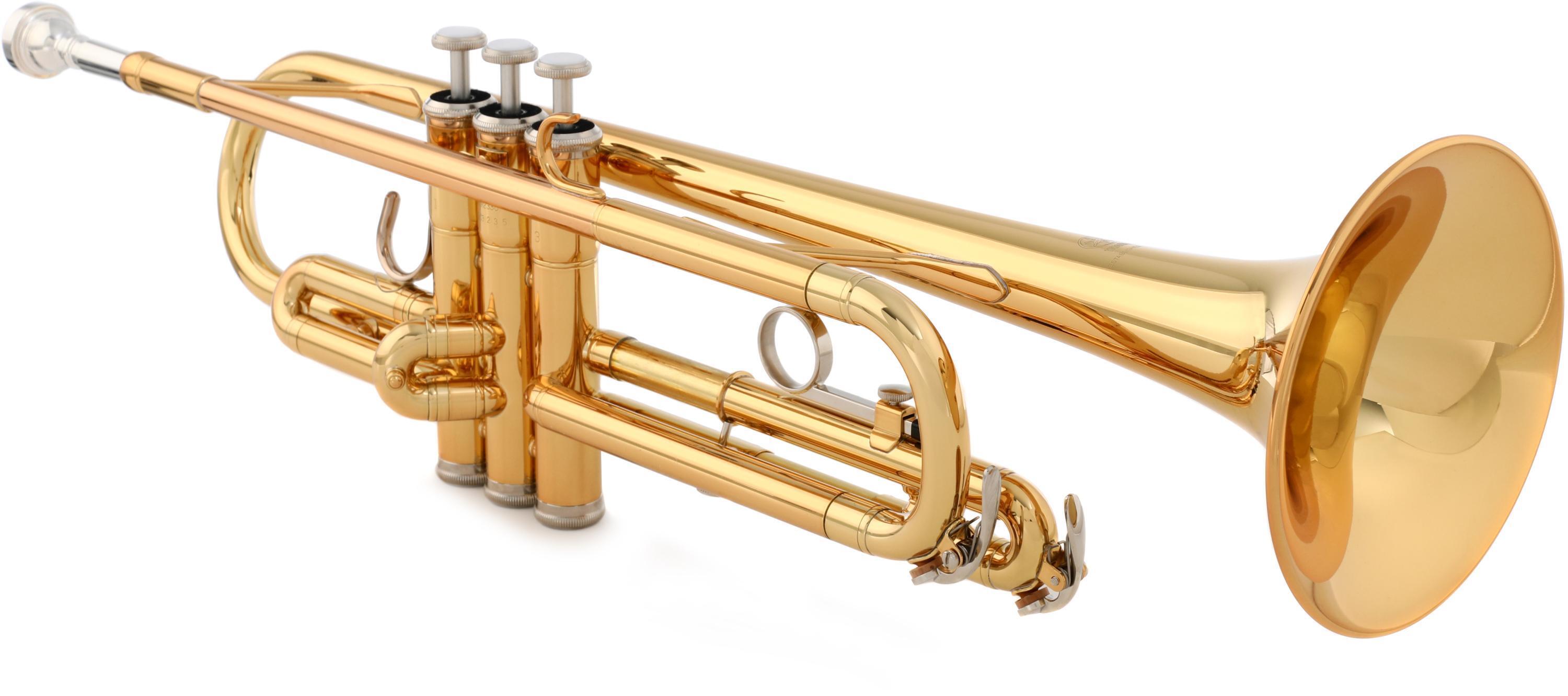What To Look For When Buying a Trumpet
Buying a trumpet is an exciting journey that marks the beginning or continuation of your musical adventure. Whether you're a beginner or a seasoned player, finding the right trumpet involves careful consideration of various factors. In this comprehensive guide, we'll explore essential tips and insights to help you navigate the process of purchasing a trumpet that suits your needs, preferences, and budget.

Understanding the Basics: Before delving into the specifics of buying a trumpet, it's essential to understand the basics of this brass instrument. The trumpet belongs to the brass family and is renowned for its bright, vibrant sound and versatile musical capabilities. Trumpets come in various types, including Bb, C, and piccolo trumpets, each offering distinct tonal characteristics and playing experiences.
Set Your Budget: Determining your budget is the first step in buying a trumpet. Trumpet prices can vary significantly based on factors such as brand, materials, and craftsmanship. While it's tempting to opt for a cheaper option, investing in a quality instrument can enhance your playing experience and longevity. Allocate a reasonable budget that aligns with your commitment to learning and playing the trumpet.
Research Brands and Models: Conduct thorough research on reputable trumpet brands and models within your budget range. Established brands like Yamaha, Bach, and Getzen are known for producing high-quality instruments. Explore reviews and recommendations from experienced players to gauge the reliability and performance of different trumpet models.
Consider New vs. Used: Decide whether you prefer purchasing a new or used trumpet. While a new trumpet guarantees pristine condition and warranty coverage, used instruments can offer substantial savings. If opting for a used trumpet, inspect it carefully for any signs of damage or wear, and test-play it to ensure optimal sound quality and playability.
Try Before You Buy: Testing out a trumpet before making a purchase is essential to ensure it meets your needs and preferences. Visit a local music store or attend instrument expos where you can try various trumpets. Pay attention to factors such as playability, sound quality, and ergonomic design to find a trumpet that feels comfortable and sounds great to you.
Seek Expert Advice: Seek advice from experienced trumpet players, music teachers, or instrument technicians during your buying process. They can provide valuable insights and recommendations based on their expertise. Consider bringing along a knowledgeable friend or mentor when trying out trumpets for an additional perspective.
If you are interested in learning music check out our Music Lessons in Tulsa.
Evaluate Build Quality: Examine the build quality of the trumpet, focusing on key components such as valves, slides, and finish. High-quality trumpets feature durable construction and precise craftsmanship, ensuring smooth playability and longevity. Avoid instruments with loose valves, dents, or scratches, as they can affect performance and require costly repairs.
Assess Sound and Tone: The sound and tone of a trumpet are crucial factors to consider when making your purchase. Each trumpet produces a unique sound characteristic to its design and construction. Experiment with different trumpets to find one that resonates with your musical style and preferences. Consider factors such as brightness, projection, and intonation when assessing tone quality.
Check for Accessories: Consider the accessories included with the trumpet purchase. Essential accessories may include a mouthpiece, valve oil, cleaning kit, and carrying case. Ensure that these accessories meet your needs and quality standards, as they contribute to your overall playing experience and convenience.
Factor in Long-Term Maintenance: Maintenance is essential for keeping your trumpet in optimal playing condition. Factor in long-term maintenance costs when budgeting for your purchase, including regular cleaning, lubrication, and occasional repairs. Additionally, consider investing in a maintenance kit and learning basic maintenance techniques to prolong the lifespan of your trumpet.
Conclusion: Buying a trumpet is a significant investment that requires careful consideration and research. By following these tips and insights, you can confidently navigate the buying process and find a trumpet that suits your needs, preferences, and musical aspirations. Remember to prioritize quality, playability, and sound when selecting your instrument, and don't hesitate to seek expert advice along the way. Happy trumpet shopping!
If you like this check out our article: Should I Play Piano?
